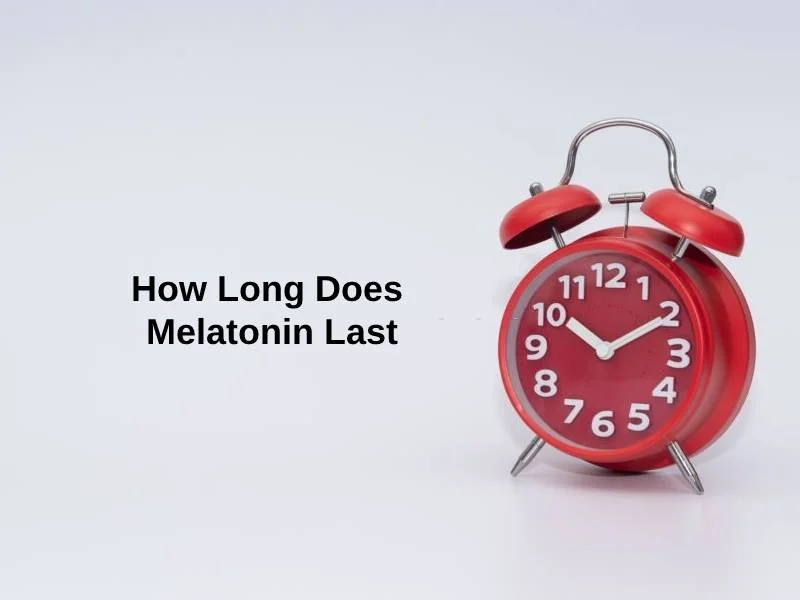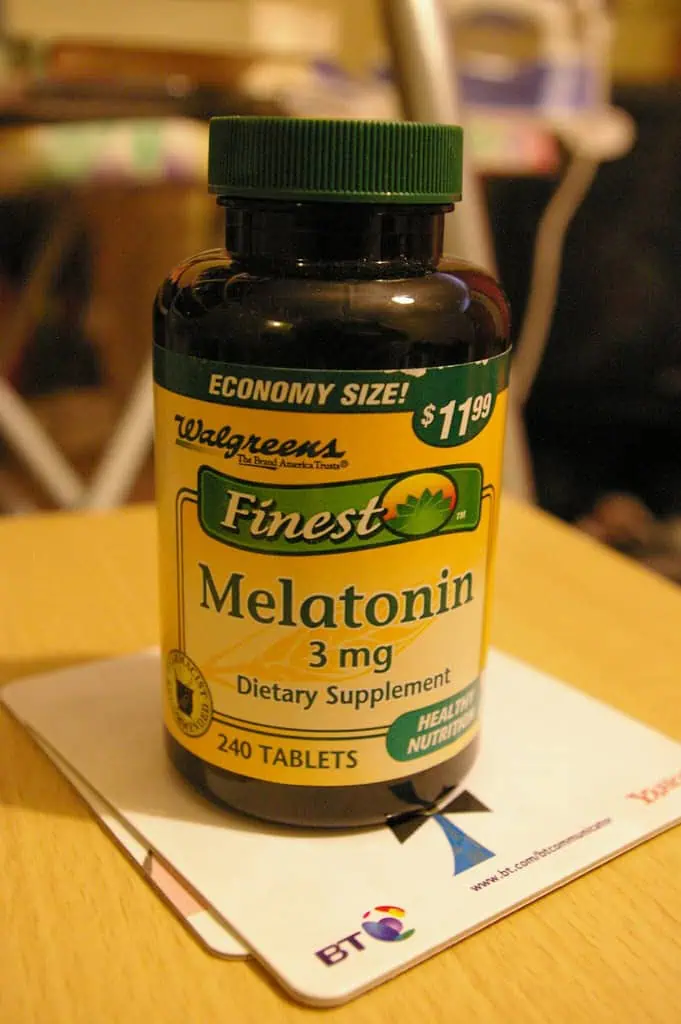Exact Answer: 4 – 8 Hours
Melatonin is a hormone primarily released by the pineal gland at night that is associated with the control of the sleep-wake cycle inside the body. Although it is a naturally occurring hormone, it is also available in the form of dietary supplements that are called over-the-top (OTD) sleep aids which are used for short-term treatment of insomnia due to reasons like jet lag or shift work. It is taken orally.
Melatonin does not last in the body for a very long time. It has a half-life of about 40 to 60 minutes. The half-life is the time it takes for the body to flush out and eliminate half a drug from the body. Typically, it takes about four to half-lives for a drug to be fully eliminated. Thus, melatonin takes between four to eight hours to wear off, but the amount of melatonin one consumes can cause this number to vary significantly.

How Long Does Melatonin Last?
| Stages | Time |
| Melatonin starts taking effect | Within 30 – 45 minutes |
| Melatonin reaches the peak levels inside the body | Within 1 hour |
| Melatonin’s longevity | 4 to 8 hours |
The melatonin inside the body helps in regulating the circadian rhythm – the internal clock of the body, which instructs the body when to be asleep and when to be awake over a 24-hour cycle. Melatonin supplements i.e. exogenous melatonin are marked as sleep aids that help the body in inducing sleepiness in a person who has consumed it.

Melatonin’s half-life depends on its formulation. A half-life describes the amount it takes for the body to metabolize half of a dose of a medication. As everyone metabolizes drugs differently, some might begin to feel the effects of melatonin sooner than others.
Melatonin is considered by the medical community as a dietary supplement similar to vitamins and minerals. Thus, the Food and Drug Administration (FDA) does not regulate its dosage.
Why Does Melatonin Last This Long?
Depending on various factors, exogenous melatonin stays inside one’s system for about 4 – 8 hours. The half-life of melatonin responsible for its elimination can be impacted by the type of melatonin supplement one consumes. Normally, specially formulated slow-release melatonin sleep aids can last longer than the immediate release ones.
Immediate-release melatonin tablets dissolve rapidly and are instantly released into the bloodstream. Extended-release melatonin will take its time to dissolve slowly, steadily, and gradually releasing melatonin over several hours into the blood. Thus, immediate-release melatonin helps people to fall asleep shortly after taking them whereas the extended-release formulation helps people to stay asleep throughout the night due to its slow release.
The body absorbs melatonin rapidly and thus it reaches the peak level within one hour. When this happens the person starts feeling drowsy. Several external factors that may affect the longevity of melatonin include a person’s age, overall health status, body composition, weight, caffeine intake, sleep hygiene, etc. Poor sleep hygiene and habits, like exposure to electronics or other sources of bright, artificial light at night, might tell the brain to stay awake longer, completely messing up one’s sleep cycle.

It is recommended that people should start by taking a low dose of melatonin 30 minutes before the time they want to sleep. Care must be taken not to have it after the ideal bedtime as it can drastically alter the sleep-wake cycle. A person may fall asleep later than what they had planned or experience daytime fatigue if melatonin is taken at the exact moment or after bedtime.
Conclusion
Melatonin is a naturally occurring hormone that promotes sleep. In addition to promoting sleep, it can also help relieve anxiety before and after surgery. On average, Melatonin sleep aids can last for approximately 4 to 8 hours, depending upon the dose and formulation of melatonin consumed by the person and numerous other factors.
People are advised to avoid taking melatonin at or after their intended bedtime as it can disrupt or shift their sleep-wake cycle. Incorrect usage of melatonin can lead to daytime sleepiness.
If a person continuously experiences insomnia or other sleep problem even after taking melatonin, they should contact their doctors immediately to discuss treatment options as it might be a sign of some underlying issues.